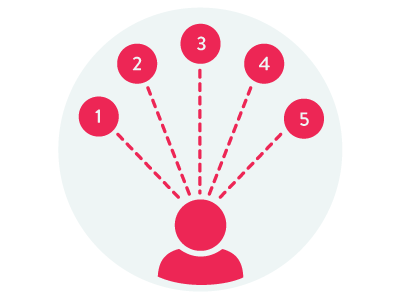The scenarios studied by researchers from the Dynamic Drivers of Disease in Africa Consortium were developed by the Stockholm Resilience Centre. They are not projections. Rather, they are plausible stories and illustrate what might happen based on given assumptions in the chosen settings.
They can be used to:

This scenario assumes linear projections of change along all dimensions – climate, land use, socio-economic conditions, institutional development and technological change.
This means that:
This scenario assumes that the region experiences considerable warming, with +2°C to +3°C increases in average temperature.
There are associated changes in precipitation patterns, vegetation type and cover, and secondary impacts on biodiversity and ecological systems. Other factors develop as in the BAU scenario, i.e. incremental, predictable and path-dependent changes in institutions, technology and demographics. The key resource used to develop this scenario was the United Nations Framework Convention on Climate Change (UNFCCC) climate impact projections for Africa.
This scenario sees an increased connectivity to global markets and continued volatility in food prices, such as that experienced in the 2008-2009 food crisis.
People’s diets are changing rapidly across the world and the perceived urgent need to increase food security is the key driver in this scenario.
Policymakers at the national level, sometimes in collaboration with international land investors, increase their activities in the region. Their aim: to expand agricultural production rapidly or to expand economic activities to world markets (e.g. mining, cash crops etc.).
Other factors, such as climate, institutions, technology and demographics, remain the same as in the BAU scenario.
This scenario considers the human health and biodiversity implications in the region if considerable investments were made to promote a One Health agenda?
This would mean international and national policymakers making large investments in integrating disease surveillance, prevention, and control systems.
It would also see institutional reforms, the creation of coordination mechanisms across different sectors, capacity building and similar initiatives.
Other factors of climate, land use change, and demographics are the same as in the BAU scenario.
This scenario considers those surprises and shocks that could radically change the direction of the alternative futures from a human health perspective. Surprises and shocks can be identified across different systems, e.g. social, economic and technological, as well as across different spatial scales, e.g. local, regional, national and global.
Surprises are defined as situations in which the behaviour in a system, or across systems, differs qualitatively from expectations, often stemming from poorly understood interactions in complex systems. Some of these might be truly unexpected. In other cases, responsible authorities and other relevant actors might have ignored evidence.
Shocks are defined as major stresses that force policymakers and others in the policy sphere and/or in relevant communities to respond rapidly, despite considerable uncertainties and a limited time to act.